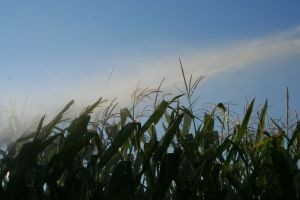 Welcome to the Hessenauer Sprinkler Repair and Irrigation blog and website. Many homeowners use automated sprinkler irrigation systems to irrigate their lawns and ornamental plants. In addition, nearly all newly built residential properties in Florida are irrigated using automatic systems with permanently installed sprinklers. Although sprinklers are designed to provide minimal maintenance and automated irrigation, some common irrigation issues could arise and need fixing.
Welcome to the Hessenauer Sprinkler Repair and Irrigation blog and website. Many homeowners use automated sprinkler irrigation systems to irrigate their lawns and ornamental plants. In addition, nearly all newly built residential properties in Florida are irrigated using automatic systems with permanently installed sprinklers. Although sprinklers are designed to provide minimal maintenance and automated irrigation, some common irrigation issues could arise and need fixing.
Some of the most common irrigation issues include clogged sprinklers, obstructed sprinklers, overspray and pipe leaks or breaks. Although we recommend leaving sprinkler irrigation issues to your trained professional, some of these problems could be easily repaired.
Sprinklers can become clogged by dirt or debris in the filter or nozzle of the sprinkler. When the system is running with a clogged sprinkler, little or no water is able to exit the nozzle. In spray systems, raise and secure the pop-up part of the sprinkler (known as a riser) using a helper or a soft surfaced clamping device. Use minimal force to not damage the riser. Unscrew the top part of the spray head while the water is turned off, and remove the filter from the inside of the sprinkler body. To remove the filter from the body of the sprinkler you may need tweezers or a paper clip. Rinse the filter and spray nozzle off and while the spray is dismantled, the irrigation line should be flushed to ensure no other debris is in the system. Replace the filter and the nozzle, making sure that the spray of water is aimed in the proper direction. Turn on the irrigation and ensure that water spray is reaching the targeted area.
For the rotors, the internals of the rotor need to be removed because the small basket-shaped filter is at the bottom of the rotor body. This can usually be performed by unscrewing the top portion of the rotor from the body using counter clockwise turns. Remove the filter, rinse it thoroughly and while the rotor is dismantled, the irrigation line should be flushed to ensure no other debris is in the system. Use care that dirty water and trash doesn’t drain back into the open rotor body. Replace the filter and nozzle and turn on the irrigation system and adjust the rotor’s coverage pattern if necessary.
Leaks can occur in sprinklers when seals become worn over time. The location of the leak determines how to repair it, and the common places to find a problem is in the rotor or the valves. Some types of rotors allow for replacement of the seal inside the sprinkler. In general, once the sprinkler body has a large leak, the entire sprinkler should be replaced. There are several types of irrigation valves, each having different problems and maintenance requirements. The problems that can cause leaks in valves depend on the type of valve. In general, if the valve has an external crack it will need to be replaced.
Overspray onto sidewalks, streets or buildings can be an issue. Sprinklers require adjustment to ensure water is properly applied to the right areas. If a street or house is wet after an irrigation cycle, the irrigation system should be evaluated and modified so that water is applied only to the landscape. A common problem is incorrectly positioned sprinklers. They can be slightly tilted so that the irrigation is not directed towards the target area (Figure 9). To repair this type of problem, remove soil away from the side of the sprinkler, straighten the sprinkler, and then replace and pack the soil around the sprinkler body.
It is also important to maintain the area surrounding a sprinkler to prevent obstruction of the spray. Turfgrass can grow over pop-up sprinklers making it impossible for the sprinklers to pop-up. Shrubs and overhanging tree branches may also need to be pruned back far enough to keep the sprinkler from being obstructed. Over time, sprinklers can be pushed further into the ground, causing the spray of the sprinkler to not reach surrounding areas.
Thank you again for visiting the Hessenauer Sprinkler Repair and Irrigation blog and website. Contact us today at 407-302-2227 for an estimate on any sprinkler irrigation projects you may have on the horizon. Bookmark us and be sure to come back soon!
